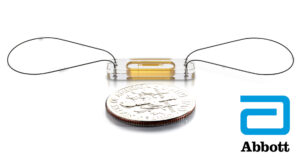
A FDA approved cardiac monitoring device may be able to drastically improve the life of a patient living with heart failure. The CardioMEMS Heart Failure (HF) system, a paperclip sized device, collects a patient’s pulmonary artery pressure (the flow of deoxygenated blood from the heart to the lungs which reflects fluid levels) remotely and sends this real-time data to their provider. Essraa Bayoumi, MD, an assistant professor in the Division of Cardiology said cardiologists with UNC’s Advanced Heart Failure Team can use the information to update treatment plans even before symptoms arise, without waiting for the patient’s next clinic appointment.
“This device is already proven to reduce rehospitalizations for heart failure. It has also shown to improve mortality, quality of life, and allows providers to proactively treat heart failure,” Dr. Bayoumi said.
How it Works
The sensor gets implanted into the pulmonary artery during a minimally invasive, 30-minute outpatient procedure. Patients won’t need to prepare for any down time, and most will never feel it’s there. From home, the patient will lay on a separate pillow-like device to transmit their fluid status, being recorded by the CardioMEMS, to their care team. If the data shows an increase in pressure which can be a sign of an exacerbation of their heart failure, the cardiologist will contact the patient about changing medications, scheduling an appointment or the best course of treatment.
“Not having to wait till the next clinic appointment to know if someone’s heart failure has progressed can take away some of the patient’s worry. Especially for a patient who may not live close to UNC, this is a great way to stay connected to the people who have been taking care of you,” Dr. Bayoumi said.
 CardioMEMS at UNC
CardioMEMS at UNC
The University of North Carolina’s Advanced Heart Failure Team is currently offering this device to eligible patients, but Dr. Bayoumi wants to increase awareness further.
“Heart failure is a major reason for rehospitalizations and a major cause of morbidity and mortality in the U.S. For the right patient, a CardioMEMS device can reduce hospitalizations and improve a patient’s quality of life,” Dr. Bayoumi emphasized.
To refer a patient for a CardioMEMS reach out to a provider with UNC’s Advanced Heart Failure Team. In the near future, Dr. Bayoumi hopes to have the system automatically identify inpatients and outpatients at UNC who are good candidates for the device.